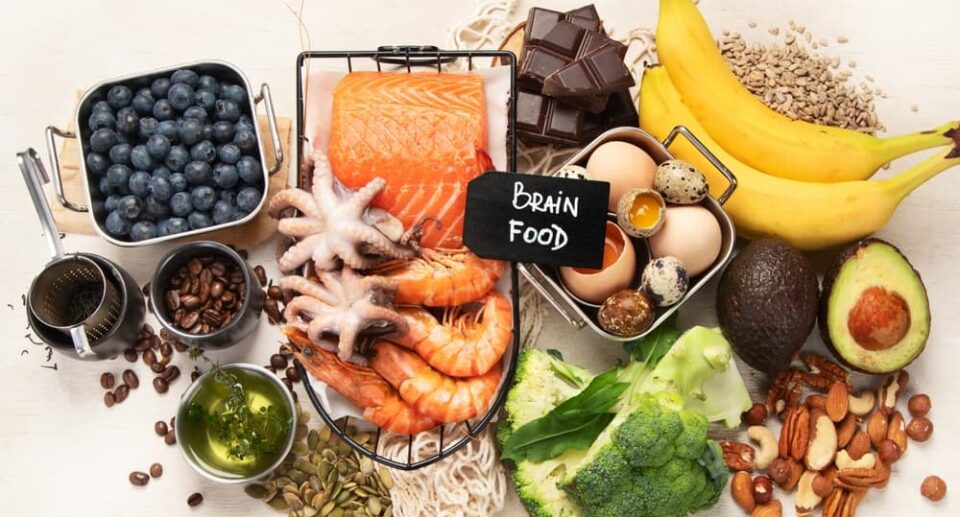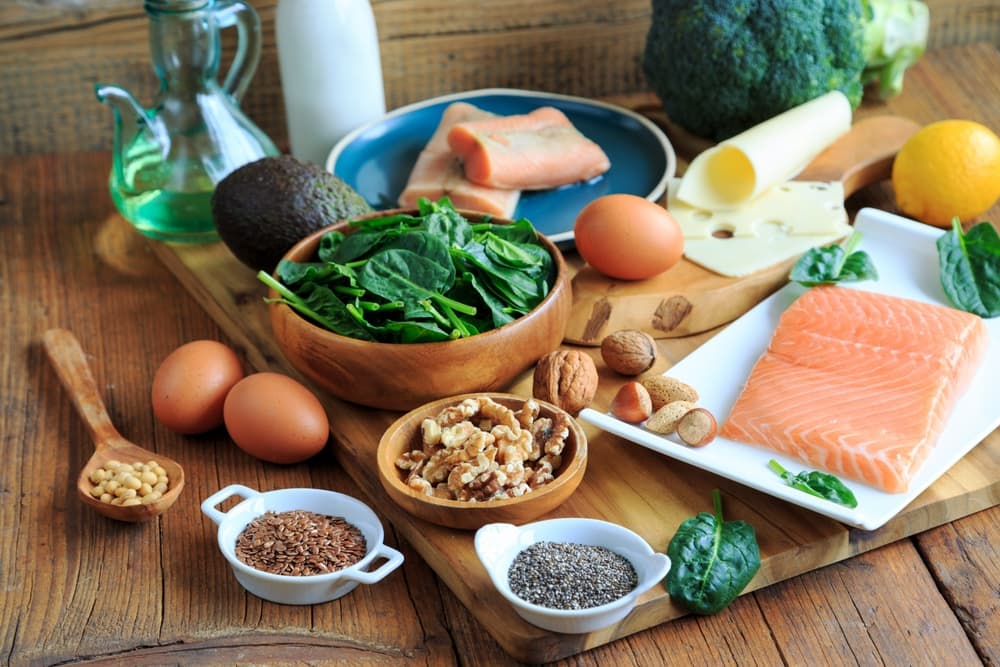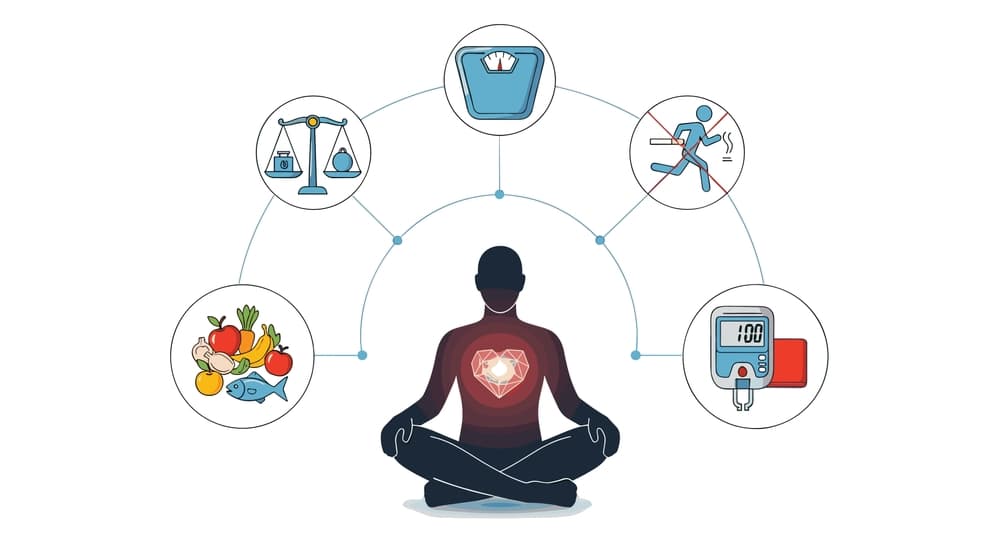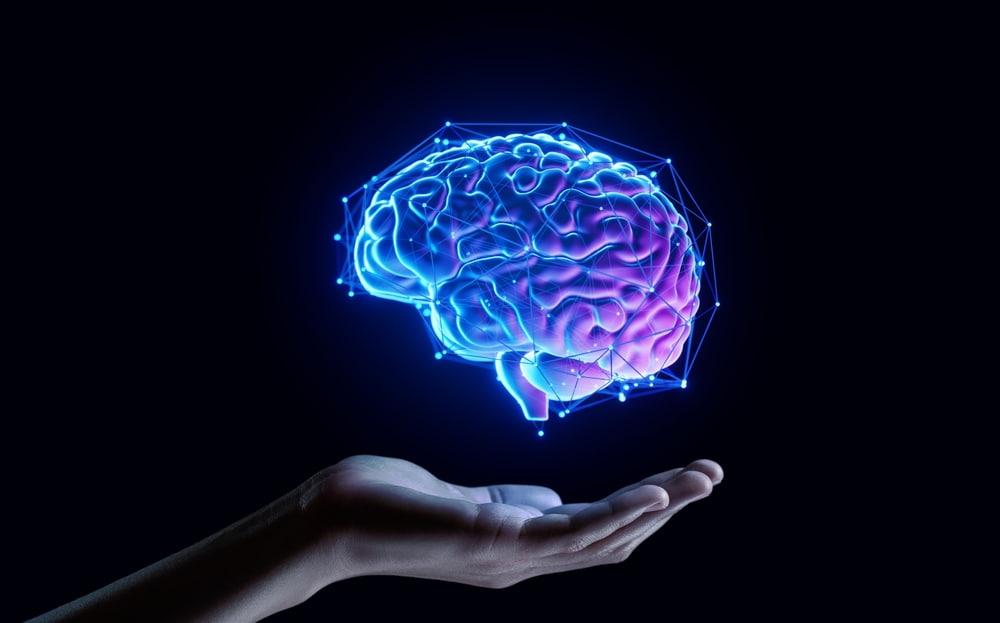Best foods to improve brain function and mental clarity


Best foods to improve brain function and mental clarity are essential not only for health conscious people today, but also for everyone who wants to stay mentally active throughout the day. Because our brain is the center of thought, attention, decision-making, and memory. But busy lifestyles, stress, and irregular eating habits gradually reduce brain function and mental clarity. The good news is that certain foods nourish brain cells, increase blood circulation, and help improve attention and memory. Studies have shown that eating foods rich in omega-3 fatty acids, antioxidants, vitamin E, and choline regularly keeps the brain more active, focused, and fresh.
We will identify which foods are most effective for improving brain function and mental clarity, why they are beneficial for the brain, and how to easily add them to your daily diet to maintain mental freshness and focus.
The best brain foods and their effectiveness
The role of food in protecting brain health and increasing mental performance is immense. There are some special foods whose nutrients directly help brain cells, neurotransmitters, and blood circulation. Below are the best brain foods and their functions:
Fish rich in omega-3 fatty acids
“Harvard Health reports that omega-3 fatty acids support memory.”
Examples: salmon, tuna, sardines, and mackerel.
Main ingredients: Omega-3 fatty acids, especially DHA. The brain is composed of about 60% fat, of which more than half is omega-3 fatty acids.
Function:
Brain cell formation: DHA is essential for the formation of brain cells and nerve cell membranes.
Memory and learning: It helps improve memory and learning ability.
Prevent cognitive decline: Plays a role in preventing age-related mental decline and Alzheimer’s disease.
Berries
Examples: blueberries, strawberries, blackberries, raspberries.
Main ingredients: High levels of antioxidants, especially flavonoids and anthocyanins.
Efficacy:
Reduce oxidative stress: Antioxidants protect brain cells from the damaging effects of free radicals, which reduces oxidative stress.
Brain signaling: They improve communication between brain cells.
Memory improvement: Research shows that eating berries regularly improves memory and brain function.
Dark chocolate
Example: Chocolate with at least 70% cocoa.
Main ingredients: Flavonoids, caffeine, and antioxidants.
Efficacy:
Increase blood flow: Flavonoids improve blood circulation to the brain, which helps in faster cognitive function.
Attention and mood: The caffeine in it increases attention and helps release endorphins, which help maintain a good mood.
Protection: Antioxidants protect brain cells from inflammation.
Nuts and seeds
Example: Walnuts, almonds, pumpkin seeds, sunflower seeds.
Key Ingredients: Omega-3, Vitamin E, Zinc, Magnesium.
Benefits:
Vitamin E Protection: Vitamin E protects the brain from oxidative stress, which helps reduce cognitive decline with age.
“According to NIH, vitamin B12 is vital for nerve and brain health.”
Nerve Signaling: The zinc in pumpkin seeds is essential for nerve signaling and memory.
Brain Resilience: The omega-3 fats in walnuts help increase brain resilience.
Green Leafy Vegetables


Examples: Spinach, kale, broccoli.
Key Ingredients: Vitamin K, folate, lutein, beta-carotene, and antioxidants.
Benefits:
Cellular Health: Vitamin K helps build brain cell membranes.
Alzheimer’s Prevention: Folate and other B vitamins help reduce a compound called homocysteine, high levels of which can increase the risk of Alzheimer’s.
Slows down decline: Regular consumption of green leafy vegetables significantly slows down age-related mental decline.
Eggs
Example: Egg yolk and white.
Key ingredients: Choline, vitamins B6, B12, and folate.
Function:
Neuronotransmitter production: Choline is a component of an important neurotransmitter called acetylcholine, which helps regulate memory and mood.
Prevents brain atrophy: B vitamins help prevent brain atrophy (shrinkage) and dementia.
Turmeric
Example: Turmeric powder or raw turmeric.
Key ingredient: Curcumin.
Function:
Anti-inflammatory: Curcumin is a potent antioxidant that reduces inflammation in the brain.
Increases BDNF: It helps increase brain-derived neurotrophic factor (BDNF), which is essential for the growth of new brain cells and the strengthening of neuronal connections.
Coffee and Green Tea
Examples: Regular coffee, green tea.
Main ingredients: Caffeine, antioxidants, extra L-Theanine in green tea.
Effectiveness:
Alertness and focus: Caffeine increases alertness, improves focus, and reduces fatigue.
Calming focus: L-Theanine in green tea is an amino acid that helps balance caffeine’s effects. It increases alpha waves in the brain, allowing the user to focus without feeling anxious.
Important Nutrients
Omega-3 Fatty Acids


Omega-3 fatty acids, especially DHA, are one of the most essential nutrients for brain health. About 60 percent of our brain is made up of fat, and a large portion of this fat is made up of omega-3s. This element helps maintain the proper structure of brain cells and keeps cell membranes flexible, both of which are essential for rapid communication between neurons. Adequate amounts of omega-3 fatty acids help improve memory, learning, and overall cognitive function. This element is mainly found in oily fish (such as salmon and sardines), walnuts, and various seeds.
Antioxidants
Antioxidants are protective compounds that protect the brain from attacks by harmful molecules called free radicals. These free radicals damage brain cells and cause oxidative stress and inflammation, which is one of the causes of age-related mental decline or neurodegenerative diseases. Fruits, especially berries (blueberries) and dark chocolate, are rich in antioxidants (such as flavonoids), which, when consumed regularly, ensure brain protection.
Choline and B vitamins
Choline is an essential nutrient that is directly involved in the production of acetylcholine, a neurotransmitter necessary for memory and mood regulation. Egg yolks are a significant source of choline.
On the other hand, B vitamins (such as B6, B9 (folate), and B12) are essential for overall brain health. These vitamins help control levels of a harmful amino acid called homocysteine. High levels of homocysteine can damage blood vessels in the brain and increase the risk of dementia or cognitive problems. Green leafy vegetables and eggs are good sources of these vitamins.
Vitamin K and Magnesium
Vitamin K is a fat-soluble vitamin that helps in the formation of brain cell membranes. It is abundant in green leafy vegetables and helps improve memory.
On the other hand, magnesium helps keep the brain’s signaling pathways active. It supports neural plasticity, which is crucial for the brain’s ability to learn new things and store memories. Pumpkin seeds and nuts are good sources of magnesium.
Complex carbohydrates
The brain uses glucose as its primary energy source. Instead of simple sugary foods that provide quick energy, complex carbohydrates (such as whole grains, oats, brown rice) should be chosen. These foods provide a steady, sustained supply of glucose to the bloodstream, helping maintain brain energy for a long time and improving attention and concentration.
Bad foods to avoid
Drinks and foods with excess sugar: soda, energy drinks, fruit juices (artificial), candy, and pastries.
Harmful effects: Excessive sugar intake can disrupt the brain’s glucose metabolism. Studies have shown that consuming too many sugary foods increases brain inflammation and negatively affects memory and learning. Many people also consider this to be a cause of “brain fog”.
Processed foods: Fast food, instant noodles, packaged snacks, processed meats.
Harmful effects: Processed foods are usually high in salt, sugar, and unhealthy fats, but low in nutritional value. Regular consumption of such foods can damage the brain’s blood vessels and reduce brain function. These foods are often associated with obesity and diabetes, which indirectly affect cognitive health.
Trans fats and excess saturated fats: Vegetable shortening, margarine, packaged baked foods (biscuits, cakes), deep-fried foods.
Harmful effects: Artificial trans fats are one of the most dangerous fats for brain health. They cause inflammation in the brain and damage blood vessels. Excessive intake of saturated fats can damage the brain’s neural membranes, impairing memory and performance. It is essential to replace unhealthy fats with healthy fats (such as avocado and olive oil).
High-mercury fish: Tuna (some types), swordfish, shark.
Harmful effects: Although eating fish is good for omega-3s, some large fish can contain high levels of mercury. Mercury is a neurotoxin that can damage brain tissue. Therefore, choose fish with low mercury levels (such as salmon and sardines) to get omega-3 fatty acids.
Learn More: Foods to avoid for better digestive health
Daily Diet Tips


Here are some easy tips to easily incorporate these brain-boosting foods into your daily life:
Start your day with a smoothie: Add blueberries or strawberries, chia seeds or flaxseeds, and a handful of spinach. It’s a great mix of omega-3s, antioxidants, and vitamins.
Change snacks: Replace processed snacks with healthier options. For example, if you feel hungry in the afternoon, eat a handful of walnuts or almonds. This will provide instant energy and healthy fats.
Eat fish every week: Include omega-3-rich fish (salmon or sardines) in your diet at least twice a week. Those who don’t like fish can take walnuts or an omega-3 supplement (on the advice of a doctor).
Use turmeric in cooking: Incorporate it into your daily meals pulses, vegetables, or soups. To get the anti-inflammatory benefits of curcumin, you can mix a little turmeric in a glass of milk.
Make sure to drink water: Dehydration can cause brain fog, lack of concentration, and fatigue. Drink enough water throughout the day. Instead of plain water, you can drink detox water made with cucumber, lemon, or mint leaves to increase your hydration.
Don’t skip meals: Eat healthy snacks and meals on time to provide the brain with stable energy (glucose). This keeps blood sugar levels stable and reduces sudden attention deficits.
Learn More: How to reduce sugar in your daily diet
FAQ
Q.What are the best foods to improve brain function naturally?
A. Foods like fatty fish, blueberries, eggs, nuts, and leafy greens support memory, focus, and overall brain performance naturally.
Q.How long does it take for brain-boosting foods to show results?
A. With consistent healthy eating, noticeable improvements in focus and mental clarity can appear within a few weeks.
Final Takeaways on the Best Foods to Improve Brain Function and Mental Clarity
The brain is a complex and sensitive organ in our body, which controls our thinking, memory, mood, and performance. Studies have shown that what you eat every day directly affects your brain health. Foods rich in omega-3 fatty acids, antioxidants, and B vitamins protect brain cells, reduce inflammation, and strengthen neural connections. On the other hand, avoiding excess sugar, unhealthy fats, and processed foods can maintain brain function and prevent cognitive decline. Dietary changes are a simple but highly effective step to keep the brain active, alert, and healthy.









